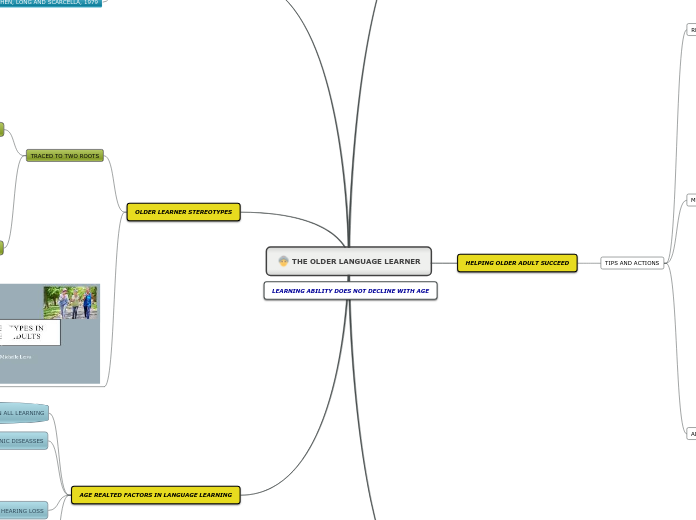by fernanda villena 4 years ago
208
THE OLDER LANGUAGE LEARNER

by fernanda villena 4 years ago
208

More like this

The Personal SWOT Analysis will provide insights based on your personality strengths and weaknesses, challenges you see ahead, opportunities present around you now, as well as future favorable circumstances.

Finally, look at any threats to your career growth. This part accounts for the external factors that could hurt the chances of attaining your goals.
List out all the things that affect your work due to the external environment. See below a few examples and feel free to add your own:
1) Family problems
2) Issues in your marriage
3) Anxiety (mental health issues)
4) Childcare, etc.
Where do you see yourself in the next 5 years? Will there be a drastic change?
List out future changes that you will have to add or avoid if you own a business.
If you have a job, will advancement in technology cost you your job?
Performing this analysis will often provide key information – it can point out what needs to be done and put problems into perspective.
These are sample questions and sample answers, please feel free to add your own questions and answers.

Once you have listed out your SWOT - It's now time to evaluate and determine further steps that need to be taken in order to achieve your goals.
There are mainly two methods:
1) Matching
2) Turning negatives into positives
The other method is converting your weaknesses into strengths or threats into opportunities.
For example: growing a skill set through education, finding a creative way to feature a weakness as a strength, etc.
CEREBRAL PLASTICITY
HOW IT MATURES
ADVANTAGES
RELY ON LONG-TERM MEMORY RATHER THAN SHORT TERM MEMORY FUNCTION
INTEGRATE NEW LANGUAGE INPUT
ABLE TO MAKE HIGHER ORDER ASSOCIATION
DEVELOP COGNITIVE SYSTEMS
BETTER LANGUAGE LEARNERS
UNDERSTAND SEMANTIC RELATIONS
AGAINTS THE OLDER LEARNERS
DISCRIMINATE

This is the most important step of all: bringing the plan into action.
Start using your results to track your progress. Set up measurements and milestones and keep working toward them. Step by step, you will get where you want to be, so get started now!

For the opportunities section, look at the external factors you can take advantage of in pursuing a promotion, finding a new job or determining a direction for your career.
What will you gain from the opportunities that you might take advantage of?
List out all the things that will help you.
Here are some examples:
'Technology' is not equal to Information Technology. For example, if you are in the soap-making business and you bring machines that speed up the process, you have introduced new technology or a process.
Add some questions and answers related to your industry and niche.
Try to create your own questions and answers that relate to your industry.
If you plan on changing your job or investing in your own business:
Have you calculated the risk involved?
Add a few questions and answers of your own related to the industry that you work in.

This part examines the areas which you need to improve and the things that will set you back in your career.
It is really important to be honest when you list out your weaknesses.
Ask people around you about your weaknesses - such as the colleague sitting next to you, your sibling or your best friend.
EMOSSIONS INTO LESSONS
Personal habits have a significant impact on people around you OR influence the impression you create in someone's mind.
List out those bad habits that you have. Here are some questions to help you:
PRESENT CONTENT THAT HAS EMOTIONAL CONNECTION IN ORDER TO GET THEIR ATTENTION
ENCOURAGE EXPLORATION
MAKE THEM TO EXPLORE A TOPIC BY THEIR OWN
ALWAYS OFFER FEEDBACK
FEEDBACKCAN MAKE THE LESSON MUCH MORE EFFECTIVE
Subtopic
REMEMBER STUDENTS BACKGROUND
Do you pay attention to how things are in done your workplace? Each company has a different working environment, so make sure to observe how things are done in that company.
Here are some questions to help you:
EXPERIENCE IS IMPORTANT
MAKE ASSIGNMENTS CONVENIENT
ASSIGNMENTS SHOULD BE CONVENIENT TO COMPLETE
KEEP IT RELEVANT
Body language is nonverbal communication, such as facial expressions, body posture, gestures, eye movement, touch and the use of space.
List out those weaknesses here. Here are some questions to help you:
LATCH ONTO LESSON THEY FEEL ARE RELEVANT
FAMILY PARTICIPATION
FUNNY ACTIVITIES
GROUP WORK
Do you have stage fright? Or do you become nervous and sweaty when you give a presentation in a room full of people staring at you?
That is something you should definitely work on!
List out such things that you need to improve.
OBJECTS, INSTRUMENTS AND ACTIVTIES TAHT MAKES OLDER LEARNERS BE ACTIVE
ROLE PLAYS
LECTURES
VIDEOS
CROSSWORDS
BALLS
MUSIC

Begin by identifying your strengths. These are the traits or skills that set you apart from others.
List out all your strengths - if you get stuck, talk to people around you and ask for their input. Please be honest with yourself.
These are sample questions and sample answers, please feel free to add your own questions and answers.
Skills that you are naturally born with
Have you ever heard someone say 'you are as hard-working as your dad'?
If you are unable to point them out, ask people around you, most likely someone from your family will be able to tell you your Natural Talents.
Choose from the examples below or/and add others:
What are the Skills that you have developed over time?
These are the skills you have learned because you view them as essential OR people advised you to acquire them in order to improve yourself.
Choose from the examples below or add others:
This is something that you learn unconsciously OR you learn by just observing someone you look up to (family/ colleagues/ teachers etc.)
Take a deep breath, close your eyes, think for a minute and type in your 'Natural Strengths' here.
Choose from the examples below or/and add others: